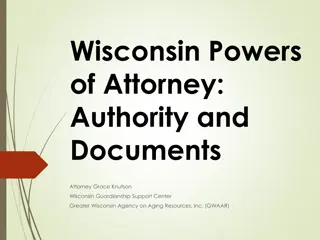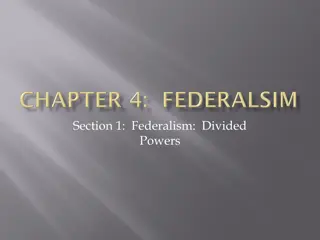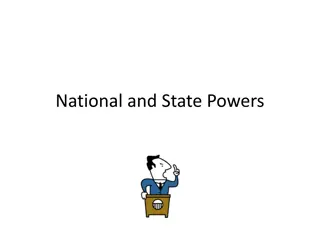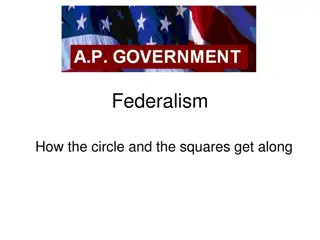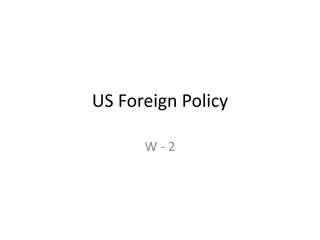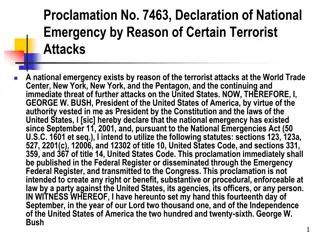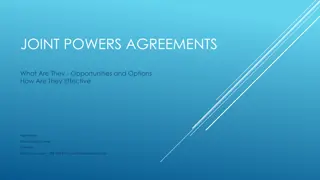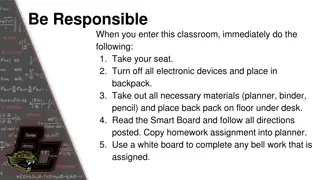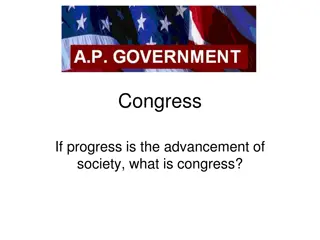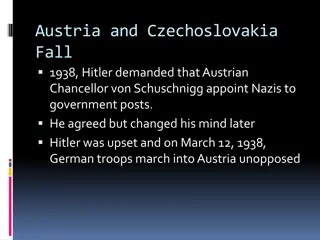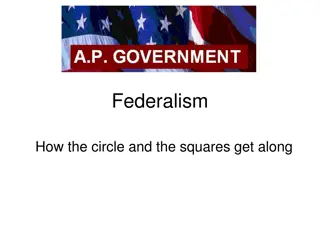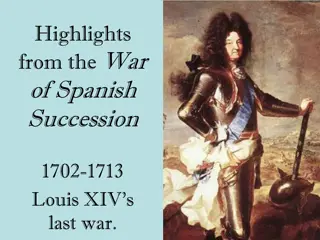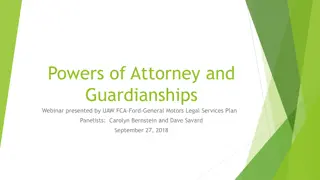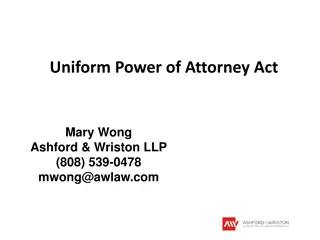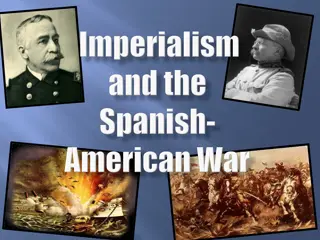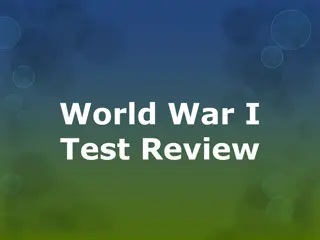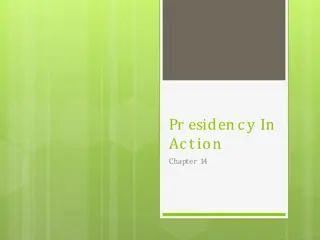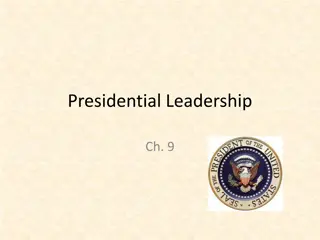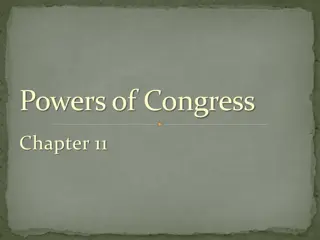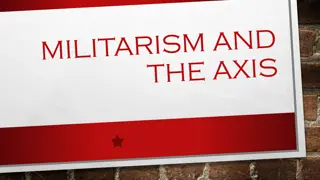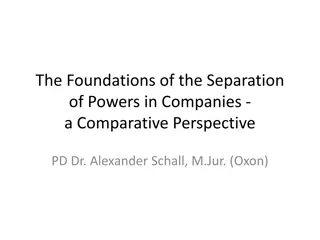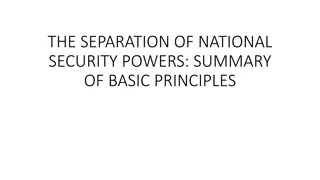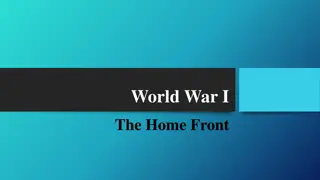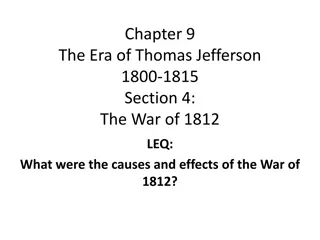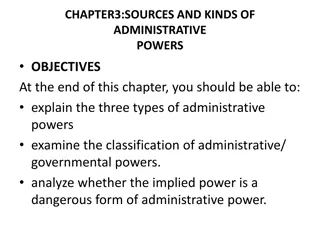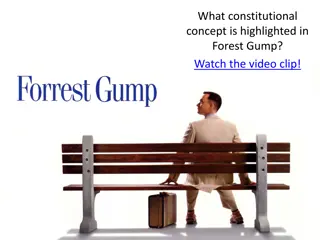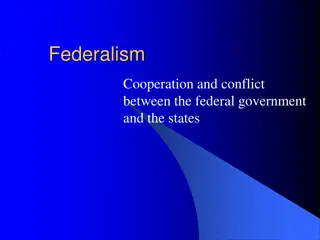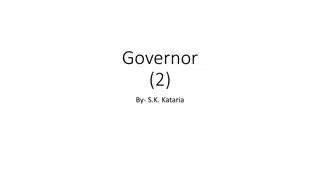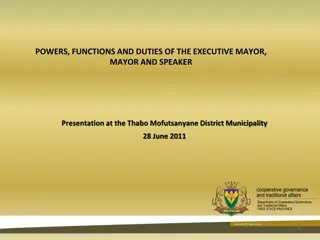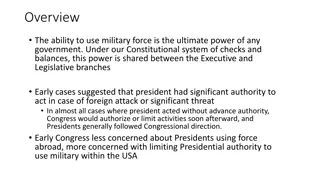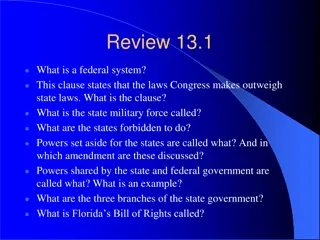❤[PDF]⚡ Civil War Talks: Further Reminiscences of George S. Bernard and His Fel
\"COPY LINK HERE ; https:\/\/getpdf.readbooks.link\/0813931754\n\nRead ebook [PDF] Civil War Talks: Further Reminiscences of George S. Bernard and His Fellow Veterans (A Nation Divided: Studies in the Civil War Era) | Civil War Talks: Further Reminiscences of George S. Bernard and His Fellow Vetera
1 views • 6 slides
READ⚡[PDF]✔ Emerging Space Powers: The New Space Programs of Asia, the Middle Ea
\"COPY LINK HERE ; https:\/\/getpdf.readbooks.link\/B004NNUV54\n\n[READ DOWNLOAD] Emerging Space Powers: The New Space Programs of Asia, the Middle East and South-America (Springer Praxis Books) | Emerging Space Powers: The New Space Programs of Asia, the Middle East and South-America (Springer Pra
1 views • 6 slides
Understanding Police Powers on the Street Webinar
Explore the powers and procedures of police officers on the street in this informative webinar featuring Sophie Leaver, a Police and Administrative Law Solicitor from Redfern Legal Centre. Topics covered include where police derive their powers, identity requests, personal searches, complaints proce
4 views • 44 slides
The Homefront: U.S. War Production Efforts During World War II
During World War II, the United States mobilized its industries for total war production, converting peacetime factories into facilities for producing planes, tanks, rifles, and more. The U.S. became the Allies' biggest armaments supplier, producing millions of war supplies and significantly boostin
2 views • 25 slides
Understanding Wisconsin Powers of Attorney: Core Concepts and Types
Explore the essential concepts of powers of attorney in Wisconsin, including self-determination, legal documentation, next of kin laws, and types such as health care and finance powers. Learn about the authority granted to agents and the implications of durable power of attorney.
0 views • 51 slides
Understanding Federalism: Divided Powers and Constitutional Framework
Federalism is a system where powers are divided between a central government and regional entities. It involves delegated, reserved, exclusive, and concurrent powers outlined in the Constitution. The supremacy of the Constitution is pivotal in establishing a unified federal government.
0 views • 5 slides
Origins of the Cold War: Yalta and Potsdam Conferences 1945
The Cold War's origins stem from the tensions and suspicions between the USSR and the West post-World War II, highlighted through conferences like Yalta and Potsdam. At the Yalta Conference, held in February 1945, crucial decisions were made regarding Germany, Poland, and the UN. The Potsdam Confere
0 views • 10 slides
Understanding National and State Powers in the United States
The Constitution grants specific powers to the national government, including expressed, implied, and inherent powers. States have reserved powers, and there are concurrent powers shared by both levels of government. The Supremacy Clause ensures that national laws take precedence over state laws. Ex
0 views • 13 slides
Insights into World War Two and Adolf Hitler's Role
World War Two started on September 3, 1939, with Britain and France declaring war on Germany. Adolf Hitler's rise to power, initiation of the war, and involvement in the Holocaust are highlighted. The Star of David symbolized Jewish identity under Hitler's rule, and the Holocaust saw six million Eur
0 views • 6 slides
Understanding Federalism in the United States
Federalism in the United States involves the relationship between the federal government and state governments, with terms such as delegated powers, reserved powers, concurrent powers, and the Elastic Clause playing key roles. The aftermath of events like Hurricane Katrina and policies such as No Ch
0 views • 30 slides
Overview of US Foreign Policy Decision-Making Process
The US foreign policy decision-making process involves various actors and dynamics such as the President, Congress, interest groups, media, and public opinion. The Constitution outlines key provisions related to war powers, treaties, and appointments. The balance of power between the branches influe
2 views • 15 slides
Understanding National Emergency Declarations and Emergency Powers Laws
This content delves into the legal aspects of national emergency declarations, emergency powers laws, and judicial review of emergency declarations. It covers the purpose, termination, historical context, congressional oversight, and impact on presidential powers. It also explores the complexities o
0 views • 6 slides
Analysis of W.B. Yeats' Poetry During World War I
W.B. Yeats' poetry during World War I reflects a unique perspective on the conflict, as seen in works like "An Irish Airman Foresees His Death" and "On Being Asked for a War Poem." Delving into themes of sacrifice, duty, and the futility of war, Yeats offers a contrasting view to the graphic realism
0 views • 7 slides
Understanding Joint Powers Agreements: Opportunities, Options, and Effectiveness
Joint Powers Agreements (JPAs) enable public agencies to collaborate efficiently, providing services and facilities in line with various factors. Idaho Code outlines the purposes, definitions, and powers that can be jointly exercised. This legal framework facilitates cooperation among entities, alth
0 views • 34 slides
Classroom Guidelines for Lesson on Properties of Exponents
Follow the classroom guidelines for this lesson on Properties of Exponents. Learn about the rules of exponents, how to simplify expressions, and complete bell work matching equations with properties. Homework includes worksheets on horse-breeding and dog eating table scraps. Understand product, quot
0 views • 10 slides
Understanding the Role and Structure of Congress in the US Government
Congress, as the legislative branch of the US government, plays a vital role in advancing society by making laws and representing the interests of the American people. Founded with intentions to balance powers and represent states of different sizes, Congress is divided into the House of Representat
0 views • 32 slides
Timeline of Key Events Leading to World War II
In the years leading up to World War II, a series of significant events unfolded in Europe. From Hitler's demands and annexations to the signing of pacts and the invasion of Poland, tensions escalated rapidly. The Munich Agreement, German offensive in Poland, declaration of war by France and Britain
0 views • 12 slides
Understanding Federalism: Powers, Relationships, and Key Terms
Explore the concept of Federalism through the relationship between the federal government (circle) and state governments (squares). Discover the powers involved such as Delegated, Reserved, Concurrent, and Prohibited powers. Delve into significant cases like McCulloch v. Maryland, terms like the Ela
0 views • 28 slides
The Impact of the Korean War on Global Relations
The Korean War, often dubbed the "Forgotten War," had significant implications on global politics and relationships. This conflict was characterized by a mix of conventional and guerilla warfare tactics. China's involvement in the war had a profound impact on its relations with the U.S. and the U.S.
0 views • 14 slides
Insights from the War of Spanish Succession (1702-1713)
The War of Spanish Succession (1702-1713) marked Louis XIV's final war, reflecting a complex political landscape in Europe. The conflict arose due to the declining power of Spain, with the last Hapsburg monarch, Charles II, facing challenges of inbreeding and mental deficiencies. The struggle for co
0 views • 20 slides
Understanding Powers of Attorney and Guardianships Presentation
This presentation covers important aspects of Powers of Attorney and Guardianships, including types of powers of attorneys, when they are needed, who should be given power of attorney, responsibilities if named as an attorney, and considerations regarding revocation. It also discusses the need for g
0 views • 11 slides
Understanding the Uniform Power of Attorney Act and Hawaii Act 22
Explore the significance of the Uniform Power of Attorney Act and Hawaii Act 22 regarding Powers of Attorney, termination of agent's authority, general powers granted, and more. Learn about the legal document granting authority to act on behalf of a principal and the termination clauses that may be
0 views • 22 slides
The Spanish-American War: Origins and Impact
The Spanish-American War was fueled by a combination of factors including economic struggles, imperial ambitions, and sensationalist journalism. Theodore Roosevelt's stance on war, coupled with the desire for Cuba's independence from Spain, led to a call for war in the late 1890s. Yellow journalism
0 views • 18 slides
World War I Test Review and Historical Overview
Learn about the key terms and concepts related to World War I, including militarism, nationalism, neutrality, propaganda, espionage, and more. Explore the long-term causes of the war, the immediate trigger, the Central Powers and Allied Powers involved, as well as important events like the Zimmerman
0 views • 13 slides
Understanding Presidential Powers in the United States
The content discusses various powers of the President of the United States, including oath of office, executive orders, appointment power, removal power, diplomatic and military powers, treaties and agreements, commander-in-chief role, and legislative and judicial powers. It covers aspects like maki
0 views • 12 slides
Powers of Congress: Legislative, Implied, and Congressional Powers Explained
Explore the various powers of Congress, including legislative powers such as enumerated and implied powers, as well as congressional powers like regulating commerce and funding the government through taxes. Discover how Congress exercises authority granted by the Constitution to fulfill its roles an
0 views • 23 slides
Understanding Presidential Powers and Leadership in the U.S.
The Constitution lays a broad framework for presidential powers, with inherent powers being claimed by presidents outside the Constitution. Informal sources of power, such as executive privilege, also play a role. Modern presidents use mass media to build support for their ideas but face limitations
0 views • 21 slides
Powers of Congress and Constitutional Framework
The powers of Congress in the United States are shaped and limited by two fundamental facts: limited government and a federal system. The Constitution grants Congress powers through expressed, implied, and inherent powers. The Congressional view of power varies between strict constructionists and li
0 views • 25 slides
The Formation and Goals of the Axis Powers in World War II
The Axis Powers, composed of Italy, Japan, and Germany, were established to challenge the existing European order and expand their influence. Through alliances and shared military ambitions, they aimed to dominate different regions of the world during World War II, with Germany targeting Europe, Ita
0 views • 8 slides
The Foundations of the Separation of Powers in Companies
The separation of powers in companies is based on the dualism of organs: the Board and General Meeting. The actual situation in companies diverges between large public companies with autonomous management and smaller private companies with owner-operators. The search for the foundations of the separ
0 views • 15 slides
Understanding the Separation of National Security Powers
The separation of national security powers involves the formalist view where Congress makes laws, the Executive executes them, and the courts interpret them. The branches' powers are often blurred, with Congress able to delegate lawmaking power to the Executive. The Executive can also acquire custom
0 views • 8 slides
America's Role on the Home Front during World War I
During World War I, America witnessed significant changes on the home front as the government took on new powers to regulate industry, agriculture, and public opinion. Women and minorities played crucial roles, voluntary rationing was embraced, and opposition by conscientious objectors was met with
0 views • 24 slides
The War of 1812: Causes, Events, and Effects
The War of 1812 was influenced by issues such as British impressment of American sailors, arming Native Americans, and trade restrictions. Despite opposition, President James Madison declared war in 1812. The conflict marked a period of American nationalism, with War Hawks pushing for war and Doves
0 views • 16 slides
Understanding Administrative Powers and Objectives
Explore the sources and types of administrative powers, including express, implied, and incidental powers. Delve into the classification of governmental powers and evaluate the implications of implied powers. Gain insights into how constitutional provisions and delegated legislation contribute to th
0 views • 16 slides
Understanding Federalism in the US Constitution
Forest Gump showcases the conflict between state and federal powers, exemplified by Governor George Wallace's refusal to desegregate the University of Alabama. The scenario underscores the concept of federalism, which isn't explicitly stated in the Constitution but is evident in the division of powe
0 views • 18 slides
Understanding Federalism: Cooperation and Conflict Between Governments
Federalism entails the division and sharing of powers between national and state governments, aiming for cooperative problem-solving. James Madison highlighted the need for checks and balances to control government abuse. The Constitution delegates specific powers to the national government while al
0 views • 9 slides
Role and Powers of a State Governor in India
The Constitution of India outlines the executive powers and duties of a State Governor, including the ability to grant pardons, reprieves, and make orders on behalf of the government. The Governor is advised by a Council of Ministers led by the Chief Minister, with certain functions requiring the Go
0 views • 9 slides
Powers, Functions, and Duties of Executive Mayor, Mayor, and Speaker
Statutory powers, functions, and duties of the executive mayor, mayor, and speaker entail receiving reports, identifying municipality needs, recommending strategies, evaluating progress, overseeing service provision, and involving communities in municipal affairs. Delegation of powers, reporting to
0 views • 73 slides
Constitutional War Powers in the United States
The use of military force is a crucial power of the government, shared between the Executive and Legislative branches under the Constitution. Congress holds the War Power, granting authority to declare war, raise armies, and regulate forces, while the President serves as the Commander-in-Chief. The
0 views • 11 slides
Overview of State Government and State Legislatures in Florida
A federal system is a political framework where power is divided between a central government and individual states. In this system, laws created by Congress take precedence over state laws. The supremacy clause enforces this hierarchy. States are prohibited from actions like declaring war or mintin
0 views • 12 slides
![❤[PDF]⚡ Civil War Talks: Further Reminiscences of George S. Bernard and His Fel](/thumb/20551/pdf-civil-war-talks-further-reminiscences-of-george-s-bernard-and-his-fel.jpg)
![READ⚡[PDF]✔ Emerging Space Powers: The New Space Programs of Asia, the Middle Ea](/thumb/21554/read-pdf-emerging-space-powers-the-new-space-programs-of-asia-the-middle-ea.jpg)


